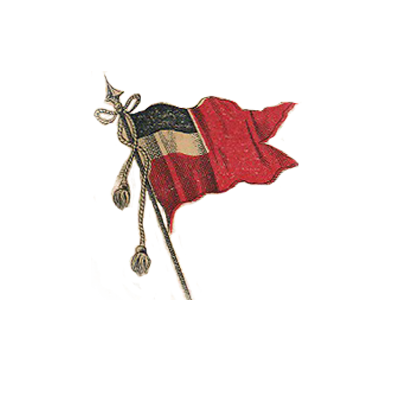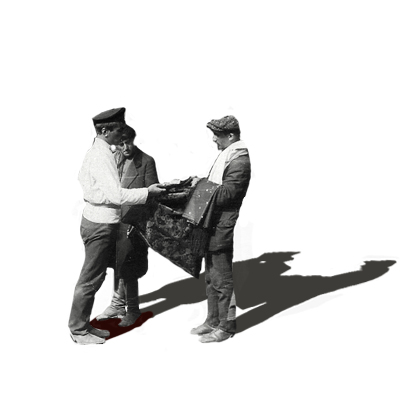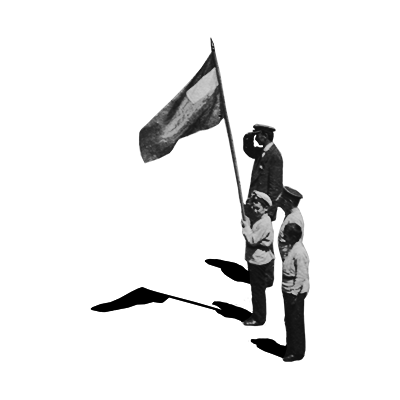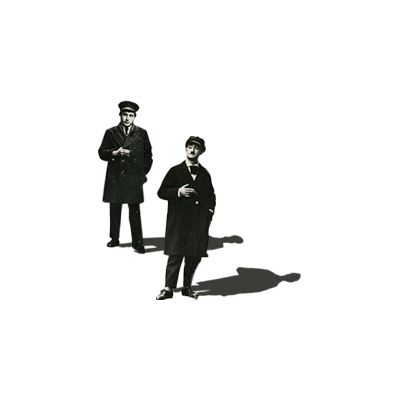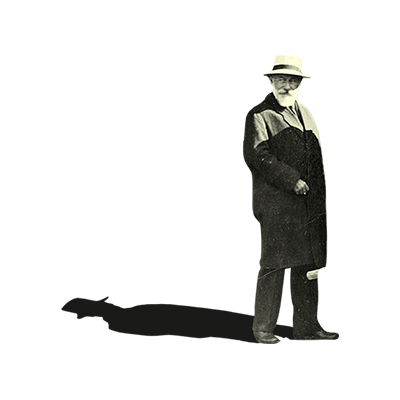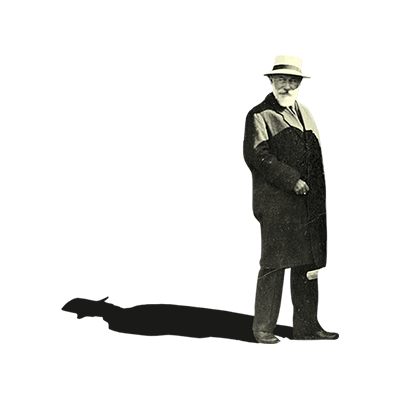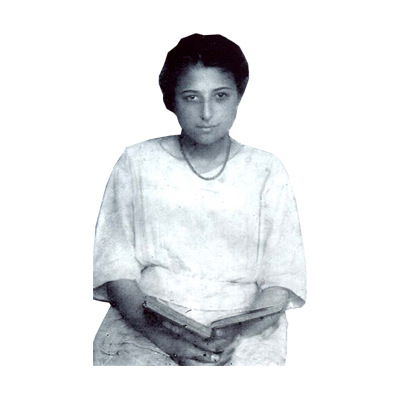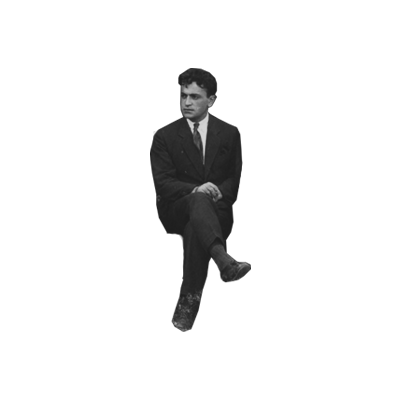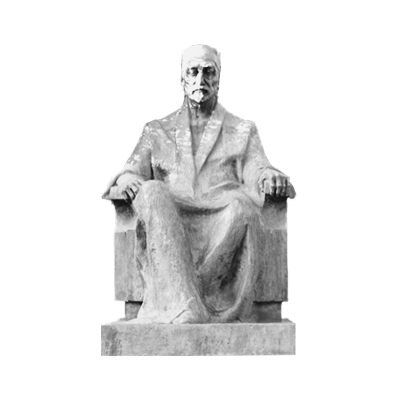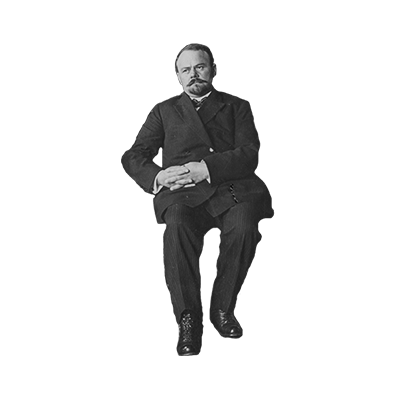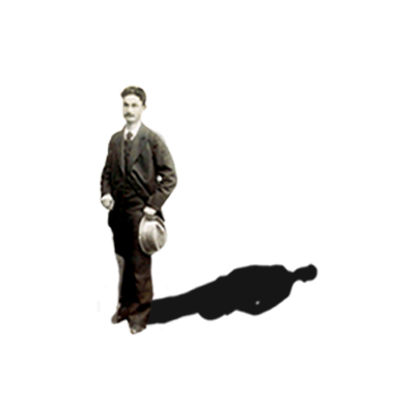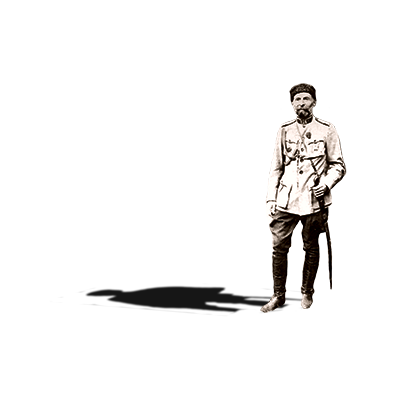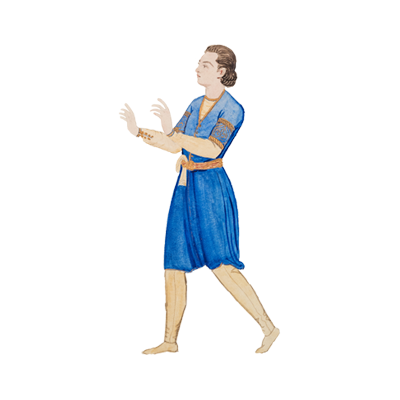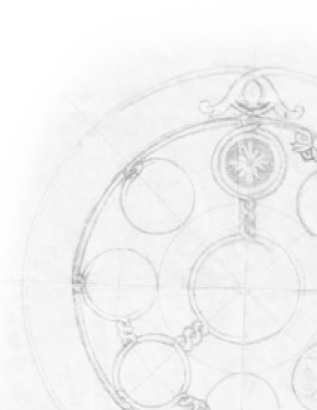
1918
Akaki Chkhenkeli’s letters to Noe Ramishvili
Selecting the most gifted politicians from within the Georgian government Chkhenkeli used to send them to Europe trying to engage them in efforts to formulate public opinion about the state of Georgia. In autumn of 1918, he kept raining letters on Noe Ramishvili giving him instructions on the further course of action
15 May
Akaki Chkhenkeli’s warning letter
Chkhenkeli’s letter of 15 May 1918 had to be dealt with as top secret by the presidium of the National Council. Chkhenkeli absolutely ruled out any possibility of discussing it within a district committee or some faction. He continued to insist on Noe Zhordania’s immediate arrival in Batumi to assess the actual situation on the ground.
15 May
A letter to Noe Ramishvili from the Batumi Conference
Akaki Chkhenkeli sent a lengthy and well-founded letter to the National Council of Georgia and the leader of the Social-Democratic Party, Noe Zhordania. The main task before them, at Chkhenkeli’s insistence, was to declare independence of Georgia without preconditions. “We are facing the abyss. It must be made clear whether Georgians are still going to follow this path as they earlier did - intoxicated by revolutionary rhetoric. I say that they will by no means follow this path because until the English reach Transcaucasia (that is doubtful) we will lose everything, including our lives. But independence can come to our rescue”.
24 May
Akaki Chkhenkeli’s telegram to Giorgi Kvinitadze
At night Chkhenkeli dispatched a telegram to General Kvinitadze claiming that the situation called for the immediate declaration of independence. The telegram was deciphered by General Odishelidze himself.
26 May
Akaki Chkhenkeli’s appointment as Minister of Foreign Affairs
The National Council approved the provisional government of Georgia. Akaki Chkhenkeli was appointed Minister of Foreign Affairs, according to Noe Zhordania.
22 September
Akaki Chkhenkeli’s activities in Germany
Arriving in Berlin on 22 September 1918 in his capacity as Foreign Minister of the independent Republic of Georgia, Akaki Chkhenkeli equipped with in-depth geopolitical and geostrategic knowledge, kept bringing to the attention of the German government the issues that were of paramount importance to Georgia – specifically the dispute over Georgia’s border with the Ottoman Empire.
29 September
A secret letter to Noe Ramishvili
On 29 September, while in Berlin, he secretly wrote to Noe Ramishvili: “Dear Noe, I am telling you all these things in confidence. I got your letter. And now let me bring to your notice one big issue, which has close bearings on all other issues, - I mean independence of Georgia and our tough stance on it. I must admit that not only our party, in general, but also the leaders seem hesitant inside their hearts and unsure about the possibility of independence, some of them are maybe even against it. Such psychological inclination is at the core of our impotence”
11 October
Akaki Chkhenkeli’s efforts in Europe to gain recognition of Georgia as an independent country
Akaki Chkhenkeli sought to deepen his relations with the European socialists. Some of them paid a visit to Georgia in 1920 and were very impressed by what they saw. On 11 October 1918, Chkhenkeli sent a telegram from Berlin to Russian Menshevik – Pavel Axelrod in Zurich asking him for assistance in securing diplomatic recognition of Georgia from European countries.
17 October
Memorandums for recognition of independence of Georgia
Chkhenkeli sent memorandums for recognition of Georgia’s independence to the ambassadors of Great Britain and United States of America to Switzerland.
11 January
Akaki Chkhenkeli’s interview with the Georgian Republic newspaper
On 11 January 2010, the Georgian Republic newspaper published an interview with Akaki Chkhenkeli where he speaks about Europe’s approach to Georgia. According to him, the European countries become gradually convinced that the newly-formed states in Transcaucasia have a viable future ahead of them: “Such views in European states evolved not only from liberal and democratic ideas but also from the reports of representatives of the partner states to the Caucasus who were not able to underestimate the maturity of Transcaucasian states away back in the early centuries when Russia itself was in a state of complete anarchy”
13 January
Appearance at the State Theatre
On 13 January 1920, on the occasion of the de-facto recognition of the independence of Georgia, Akaki Chkhenkeli delivered a report at the State Theatre saying that “Georgia was raised from the dead”. Paying a tribute to the memory of Georgia’s fallen heroes who laid the groundwork for independence he expressed his gratitude to the neighbouring countries: Azerbaijan, Armenia, Muslim Georgia, as well as to Argentina being the first to recognize Georgia’s independence.
2 March
Akaki Chkhenkeli on the elections conducted in Batumi
On 2 March 1920, the Minister of Foreign Affairs, Evgeni Gegechkori congratulated the Constituent Assembly on its overwhelming victory in the Batumi elections. Delivering his remarks, on this occasion, Akaki Chkhenkeli described the difficult situation in which the elections proceeded. However, the principle of Georgia’s unity recently recognized by Muslim Georgia is what won this victory – he said. A resolution recognizing the Batumi district to be an integral part of Georgia was submitted to the Constituent Assembly. The Government of Georgia was urged to take respective measures.
29 March
Report on the actual situation of Georgia
On 29 March, on his return from Kakheti, Akaki Chkhenkeli MP appeared before the broad audience delivering a comprehensive report on the actual situation in Georgia, both in terms of domestic and foreign affairs.
28 May
Akaki Chkhenkeli received a telegram from Sokhumi
On 28 May 1920, Akaki Chkhenkeli MP received a telegram from Sokhumi: “We are sending you 100 000 rubles, on behalf of the National Council of Georgia, to buy gifts for our honourable heroes – defenders of the Republic”. The Chair of the Georgian National Council, Grogolia (Physician). Akaki Chkhenkeli sent him back a thank-you note by telegram.
1920
Akaki Chkhenkeli delivered lectures for peasants
In August 1920, Chkhenkeli went on a trip to Pasanauri where he delivered lectures for peasants who had come a long way from the distant village, as well as for representatives of various public and civil institutions.
6 October
School named after Akakai Chkhenkeli
The self-governing body of Senaki made a decision to name the Senaki beginner school N2 after Akaki Chkhenkeli.
24 October
Opening of the second meeting of the People’s Guard
The second meeting of the People’s Guard was ceremonially inaugurated on 24 October 1920. Present at the meeting were the Deputy Chair of the Constituent Assembly, S. Mdivani, K. Japaridze, A.Chkhenkeli, I. Ramishvili, the Minister of Internal Affairs, N. Ramishvili, the Deputy Foreign Minister, Kartsivadze and the General Staff of the People’s Guard under the command of V. Jugeli. Elected as chair of the meeting, N. Eliava highlighted the People’s Guard’s contribution to his country. On his proposal, N. Zhordania and K.Kautsky were nominated as co-chairs of the meeting.ა
31 October
Report on the improvement of conditions for workers
On 31 October, the secretariat of the unions of the Republic of Georgia convened to discuss the ways for improving conditions for workers. Akaki Chkhenkeli presented a report on the topic.
18 January
The government appointed Akaki Chkhenkeli as Georgia’s fully authorized legate to Europe
Following Georgia’s occupation by Bolshevik Russia in February 1921, Georgia’s first ambassador to France - Akaki Chkhenkeli was honourably received at the Élysée Palace and was presented with the ambassador’s mandate by the then President, Alexandre Millerand himself. Akaki Chkhenkeli remained in his diplomatic office in France for 13 years until the Georgian legation headed by him was abolished (1933). However, even after the abolition of the legation, Akaki Chkhenkeli did not lose his zeal for the national-liberation movement aimed at the restoration of Georgia’s independence.
1921
Akaki Chkhenkeli’s visit to King Emmanuel III of Italy
During his audience with King Emmanuel III of Italy in the summer of 1921, Chkhenkeli was asked about his descent and country of origin. “I am a Georgian, from Sokhumi” – Akaki Chkhenkeli replied. The King of Italy was already familiar not only with Sokhumi, but also with Kutaisi and Tbilisi, so, Chkhenkeli might just as well have named Kutaisi and Tbilisi as his home cities: his ancestral home was in Khoni, near Kutaisi (the Chkhenkelis originated from Khoni, but Akaki’s father served as a priest in Abkhazia where Akaki and his younger sisters and brothers were born). During the years of independence, Chkhenkeli lived in Tbilisi. From Tbilisi he left for Europe, but it was Abkhazia where he felt like home. So he meant what he said to the King of Italy.
1918
15 May
15 May
24 May
26 May
22 September
29 September
11 October
17 October
11 January
13 January
2 March
29 March
28 May
1920
6 October
24 October
31 October
18 January
1921












